
Chimfunshi Wildlife Orphanage: A Sanctuary for Chimpanzees in Zambia
Nestled in the heart of Zambia, the Chimfunshi Wildlife Orphanage offers a unique and heartwarming experience for wildlife enthusiasts. This sanctuary is one of the largest chimpanzee reserves in the world, providing a safe haven for these incredible creatures who have been rescued from various challenging situations. Established in 1983, Chimfunshi is not just a sanctuary but also a hub for conservation and education, fostering a deeper understanding of these intelligent primates and their natural habitat. Visitors to Chimfunshi can embark on guided tours that bring them up close and personal with the chimpanzees. The tours are both informative and engaging, offering insights into chimpanzee behavior, their social structures, and the ongoing efforts to protect them. The lush surroundings of the orphanage, with its sprawling forests and serene rivers, create a perfect backdrop for this immersive experience. Beyond the chimpanzees, Chimfunshi is a testament to the spirit of conservation and community involvement. The sanctuary works closely with local communities, promoting sustainable practices and environmental education. A visit to Chimfunshi is not only a chance to connect with wildlife but also an opportunity to support a cause that makes a significant impact on both the environment and the local people.
Local tips in Chimfunshi Wildlife Orphanage
- Book your guided tour in advance to ensure availability, especially during peak seasons.
- Wear comfortable walking shoes and bring a hat and sunscreen as the tours involve walking through the forest.
- Carry a reusable water bottle to stay hydrated and reduce plastic waste.
- Respect the animals by maintaining a safe distance and not feeding them.
- Consider making a donation to support the orphanage's ongoing conservation efforts.
Chimfunshi Wildlife Orphanage: A Sanctuary for Chimpanzees in Zambia
Nestled in the heart of Zambia, the Chimfunshi Wildlife Orphanage offers a unique and heartwarming experience for wildlife enthusiasts. This sanctuary is one of the largest chimpanzee reserves in the world, providing a safe haven for these incredible creatures who have been rescued from various challenging situations. Established in 1983, Chimfunshi is not just a sanctuary but also a hub for conservation and education, fostering a deeper understanding of these intelligent primates and their natural habitat. Visitors to Chimfunshi can embark on guided tours that bring them up close and personal with the chimpanzees. The tours are both informative and engaging, offering insights into chimpanzee behavior, their social structures, and the ongoing efforts to protect them. The lush surroundings of the orphanage, with its sprawling forests and serene rivers, create a perfect backdrop for this immersive experience. Beyond the chimpanzees, Chimfunshi is a testament to the spirit of conservation and community involvement. The sanctuary works closely with local communities, promoting sustainable practices and environmental education. A visit to Chimfunshi is not only a chance to connect with wildlife but also an opportunity to support a cause that makes a significant impact on both the environment and the local people.
When is the best time to go to Chimfunshi Wildlife Orphanage?
Unmissable attractions to see
Copperbelt Museum
Explore Zambia's rich mining heritage and cultural history at the Copperbelt Museum in Ndola, a must-visit for every traveler.
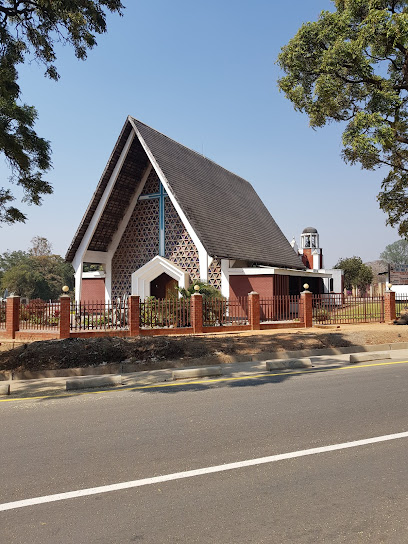
Chembe Bird Sanctuary
Discover the tranquility of Chembe Bird Sanctuary in Kalulushi, a paradise for birdwatchers and nature enthusiasts seeking peaceful outdoor exploration.
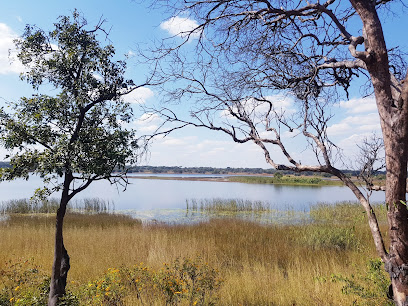
Mindolo Boat Cruise (MUZ) Kitwe
Discover the tranquility of Mindolo Boat Cruise in Kitwe, Zambia, where scenic views and local wildlife create unforgettable memories on the water.
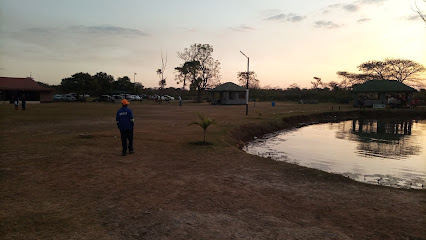
Kaunda Square
Explore the lush greenery and serene atmosphere of Kaunda Square, a perfect retreat in Kitwe, Zambia for relaxation and outdoor activities.
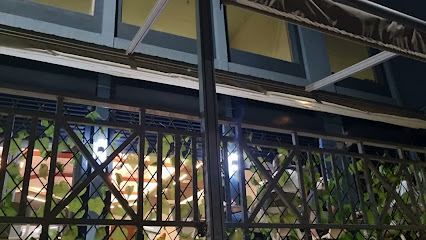
Kapisha Hot Spring
Experience tranquility and rejuvenation at Kapisha Hot Spring, a natural oasis in Chingola, Zambia, renowned for its therapeutic mineral waters.
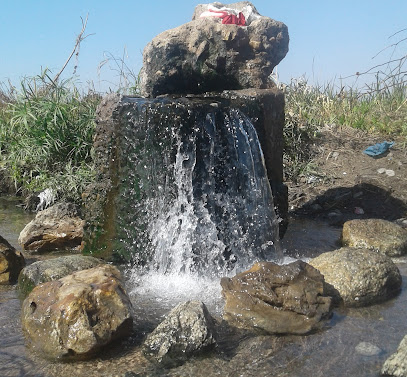
Francis Mukuka
Explore Francis Mukuka in Chingola, a serene tourist attraction blending natural beauty with rich Zambian culture for a memorable experience.
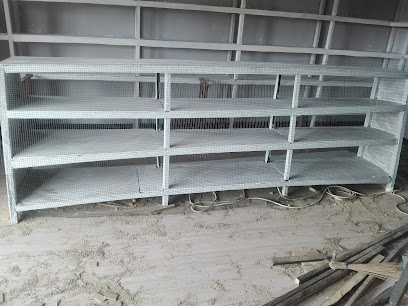
Dopchim
Explore Dopchim Park in Chingola, a serene green haven perfect for picnics, leisurely walks, and enjoying Zambia's stunning natural beauty.
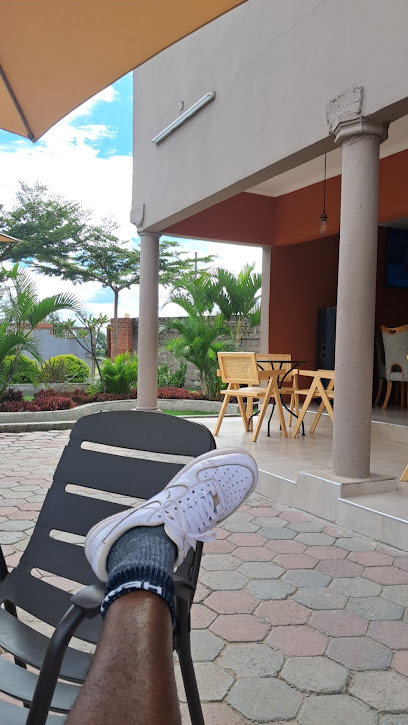
Makoma
Explore the serene beauty and cultural richness of Makoma, a hidden gem in Luanshya, perfect for nature lovers and cultural enthusiasts alike.
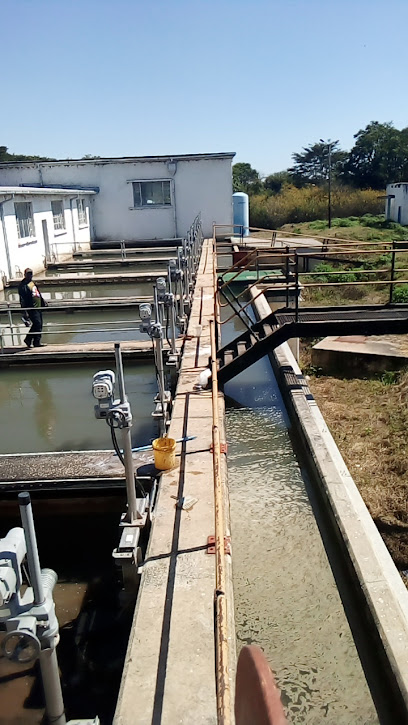
Lulamba Stone - Stage 4
Discover the breathtaking beauty of Lulamba Stone - Stage 4, a premier hiking destination in Chingola that promises adventure and stunning vistas.
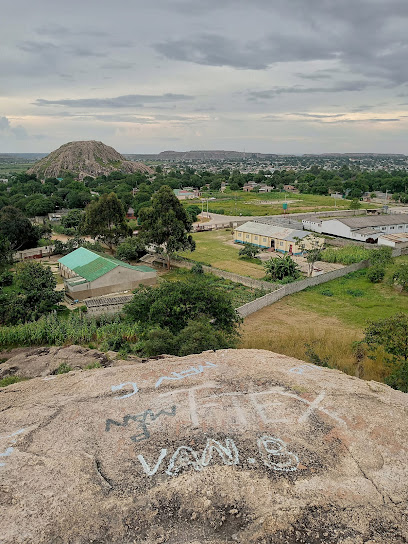
Orchid Garden Villa
Discover the serene beauty of Orchid Garden Villa in Chingola, a tranquil oasis filled with vibrant flora and peaceful landscapes perfect for relaxation.
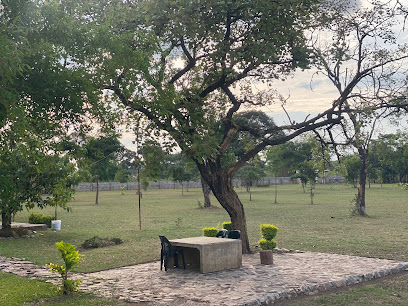
Chingola road mountain
Experience the breathtaking views and serene atmosphere of Chingola Road Mountain, a perfect nature getaway in Zambia.
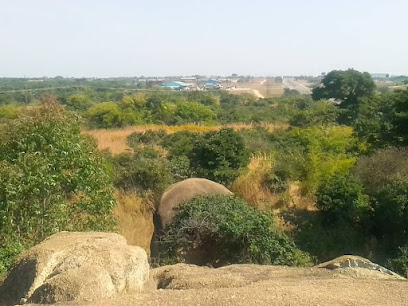
Makoma Dam
Explore the tranquil beauty of Makoma Dam in Luanshya, a perfect destination for relaxation, picnics, and birdwatching amidst Zambia's stunning landscapes.
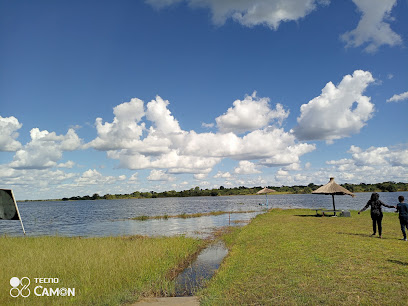
South Luangwa National Park
Experience the wild wonders of South Luangwa National Park, a premier destination for wildlife viewing and breathtaking landscapes in Zambia.

The CBU Nature Park
Explore the tranquil beauty of The CBU Nature Park in Kitwe, a serene nature preserve perfect for relaxation, birdwatching, and family outings.
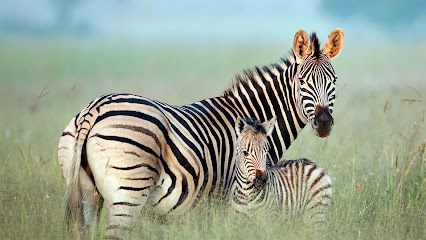
NFC Africa Mountain
Discover the breathtaking beauty and adventure of NFC Africa Mountain in Chambishi, Zambia, where nature and culture intertwine.
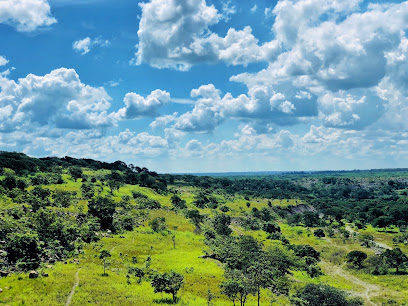
Essential places to dine
Mokorro Hotel
Experience authentic African hospitality at Mokorro Hotel in Chingola – your gateway to local flavors and culture.
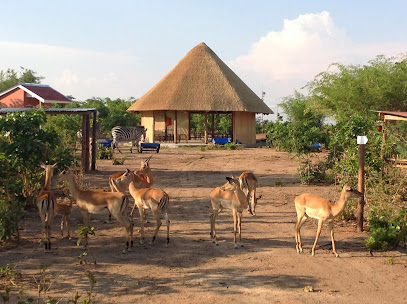
INDISH FUSION FOODS & COCKTAILS
Discover an exquisite blend of Zambian flavors at Indish Fusion Foods & Cocktails in Kitwe – where every bite tells a story.
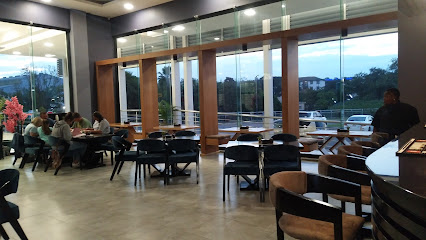
Chimfunshi Wildlife Orphanage
Discover the heartwarming stories of rescued chimpanzees at Chimfunshi Wildlife Orphanage, where conservation meets compassion.
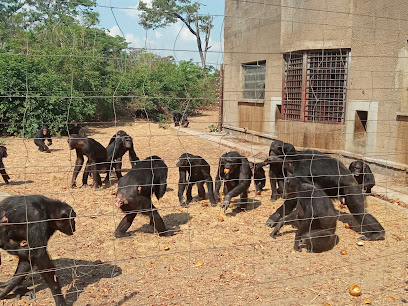
Chimfunshi Accommodation
Discover serenity at Chimfunshi Accommodation in Ngosa, Zambia – where nature meets comfort.
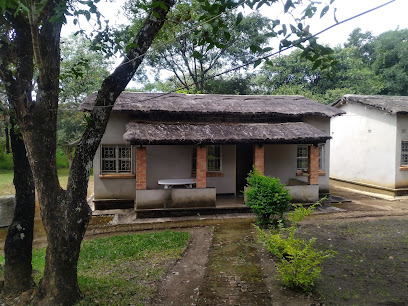
Chimwenumucious Restaurant And Takeaway
Discover the heart of Zambian flavors at Chimwenumucious Restaurant – where every dish tells a story of tradition and taste.
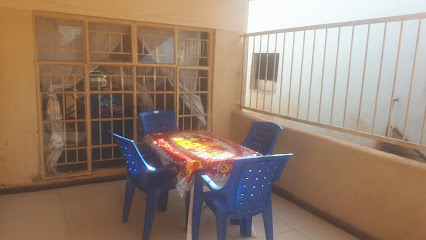
Chimfunshi Wildlife Orphanage Trust
Experience wildlife conservation at its finest at Chimfunshi Wildlife Orphanage Trust, where compassion meets education.
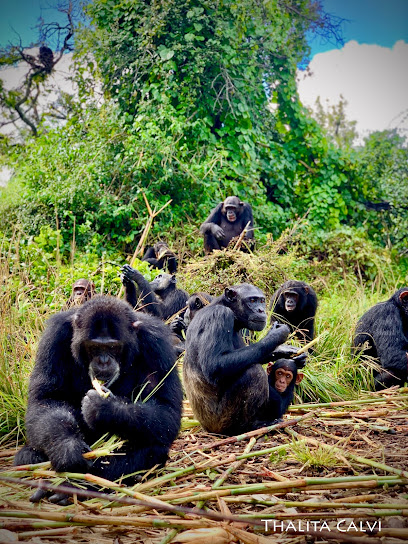
Feeddash
Experience exceptional catering services with locally inspired flavors at Feeddash – perfect for events of all sizes.

Markets, malls and hidden boutiques
Chimfunshi Wildlife Orphanage
Explore Chimfunshi Wildlife Orphanage: A Zambian gem dedicated to wildlife conservation and education, home to rescued chimpanzees and other wildlife.
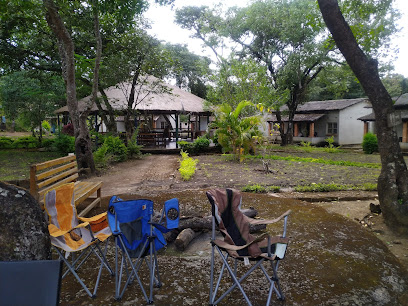
Salifyanji super market
Experience the vibrant flavors of Zambia at Salifyanji Super Market, a local grocery store in Chililabombwe brimming with fresh produce and cultural charm.

Lubambe Mine Change House
Discover the Lubambe Mine Change House, where Zambia's rich mining heritage comes alive through authentic work apparel and memorabilia.
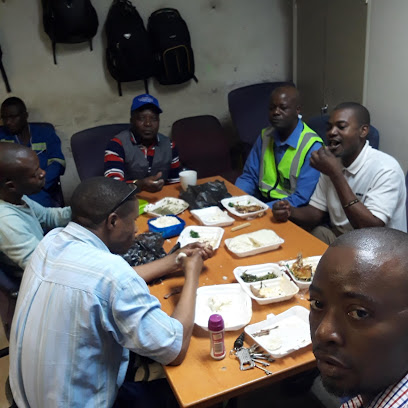
Duple influx
Discover the heart of Chililabombwe at Duple Influx, your go-to general store for local treasures and essential goods.

Flexx Store ZM
Explore Flexx Store ZM: Your gateway to vibrant local crafts and unique shopping experiences in Chililabombwe, Zambia.
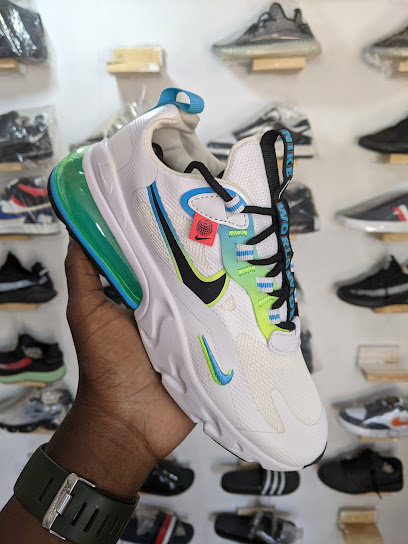
PEP Zambia Chililabombwe Shoprite
Explore affordable fashion for the whole family at PEP Zambia Chililabombwe, where style meets savings in a vibrant shopping atmosphere.
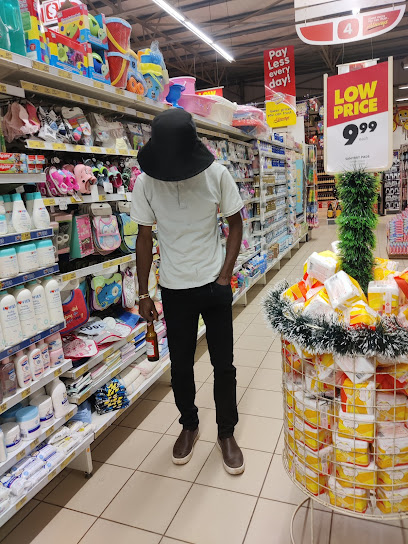
Kasumbalesa Comprehensive Trade Zone
Experience the vibrant culture and flavors of Zambia at the Kasumbalesa Comprehensive Trade Zone, a bustling hub for local goods and commerce.
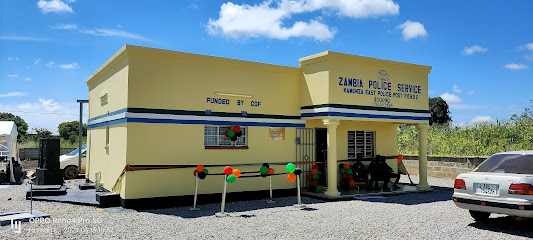
OJIZZY'S fashion center
Experience the vibrant local fashion at OJIZZY'S Fashion Center in Chililabombwe, where every outfit tells a story.
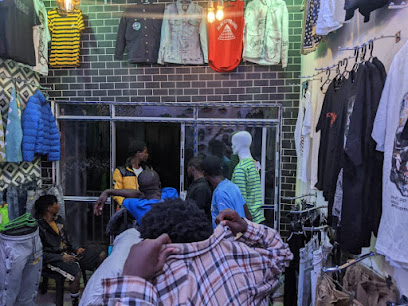
Kay ni laka classic boutique
Explore an exquisite blend of tradition and modernity at Kay ni laka Classic Boutique, a must-visit shopping destination in Chililabombwe.
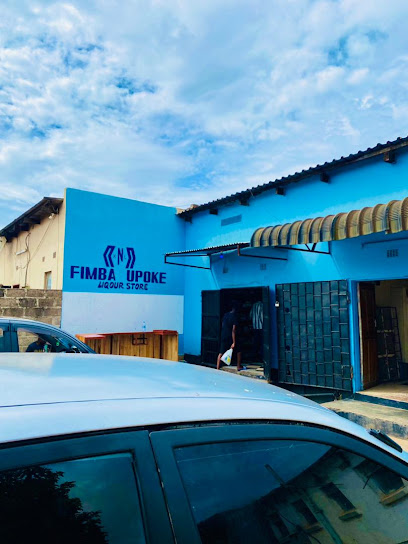
Ruth Hills Shopping Centre
Experience the vibrant local culture and fresh produce at Ruth Hills Shopping Centre in Chililabombwe, the ultimate destination for grocery shopping.
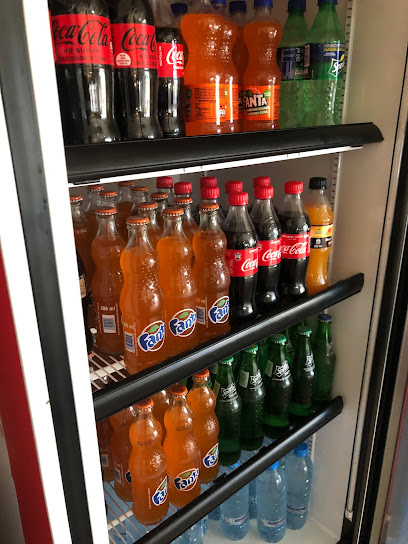
Sesheke
Explore Sesheke in Mpemba, a vibrant gift shop showcasing local crafts and unique souvenirs that embody the spirit of Zambia.

Agents of change Zambia
Explore a vibrant array of Asian household goods in Chililabombwe, perfect for unique souvenirs and cultural insights.

Mulberry Mongoose
Discover the essence of Zambia at Mulberry Mongoose, a souvenir store offering handcrafted treasures and vibrant local artistry for every traveler.

Wilwin Stationery
Explore Wilwin Stationery in Chililabombwe for a delightful array of stationery products to inspire creativity and enhance your productivity.

Issa love shoes center
Discover stylish footwear at Issa Love Shoes Center in Chililabombwe, Zambia, where quality meets fashion for every occasion.

Essential bars & hidden hideouts
Quick Flow Bar
Unwind at Quick Flow Bar in Chingola, where local culture meets vibrant nightlife and refreshing drinks await.
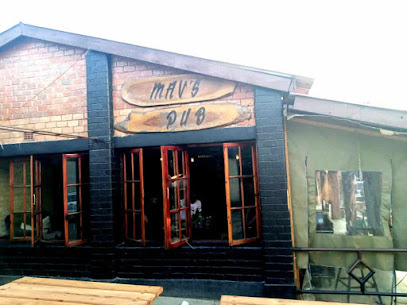
Mergans Pub & Grill II
Experience the vibrant local culture at Mergans Pub & Grill II in Chingola, a lively bar with delicious food and a welcoming atmosphere.
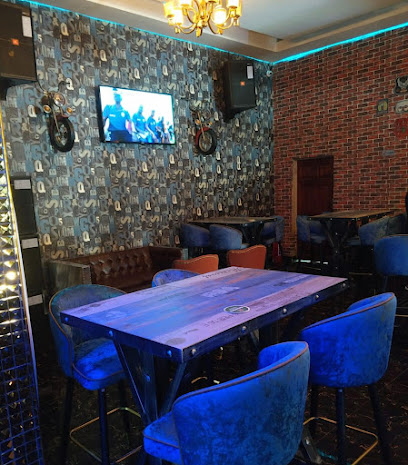
Merghans Pub
Discover the lively atmosphere and local flavors at Merghans Pub, a must-visit bar in Chingola, Zambia, perfect for relaxation and socializing.

Mavs Pub
Experience the vibrant atmosphere of Mavs Pub in Chingola, a perfect blend of local culture and lively nightlife.
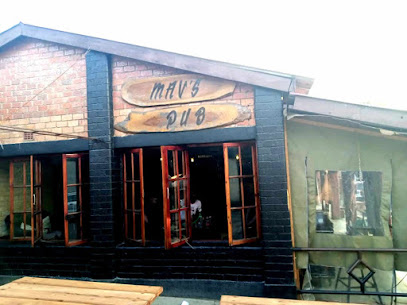
The Space Pub & Grill chingola
Experience local flavors and vibrant atmosphere at The Space Pub & Grill in Chingola, your go-to destination for grilled delights and entertainment.
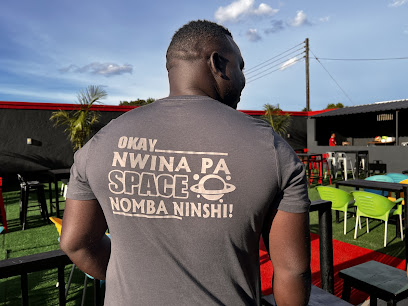
On The Rocks Pub
Discover the vibrant nightlife of Chingola at On The Rocks Pub, where great drinks and good company await you.
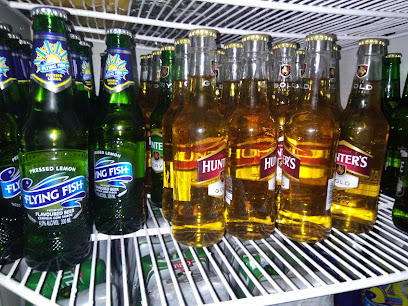
top rank bar and nite club
Discover the vibrant nightlife and delicious grilled cuisine at Chililabombwe's top bar and nightclub, perfect for socializing and entertainment.

Zango cocktail lounge
Experience the vibrant nightlife of Chililabombwe at Zango Cocktail Lounge, where expertly crafted cocktails meet a lively atmosphere.
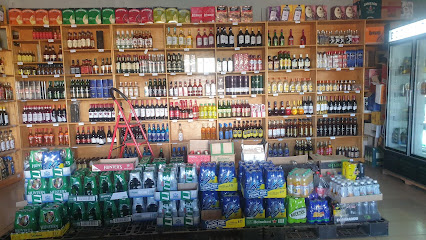
KINGS PUB
Experience the vibrant nightlife at Kings Pub in Chingola, a local bar offering a warm atmosphere and a taste of Zambian beverages.
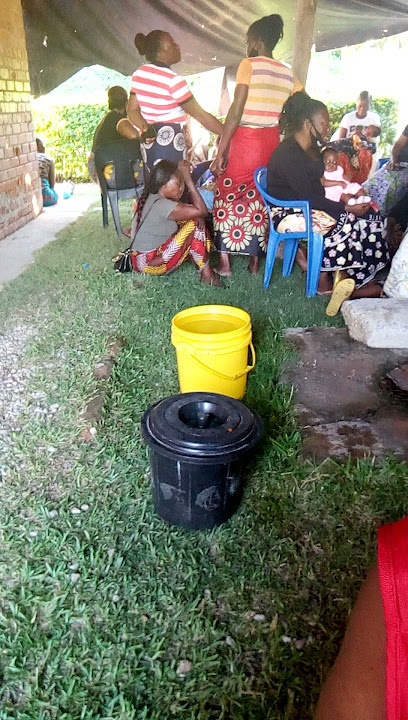
Chongwe Bar
Discover the vibrant atmosphere of Chongwe Bar in Chililabombwe, where local culture and refreshing drinks come together for an unforgettable experience.
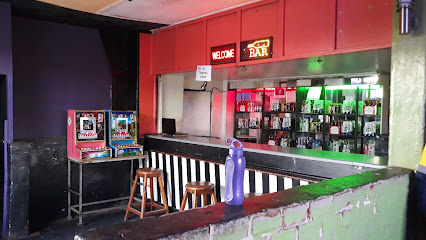
Cha's Bar
Discover the vibrant spirit of Chingola at Cha's Bar, where refreshing drinks and local culture blend seamlessly into an unforgettable experience.
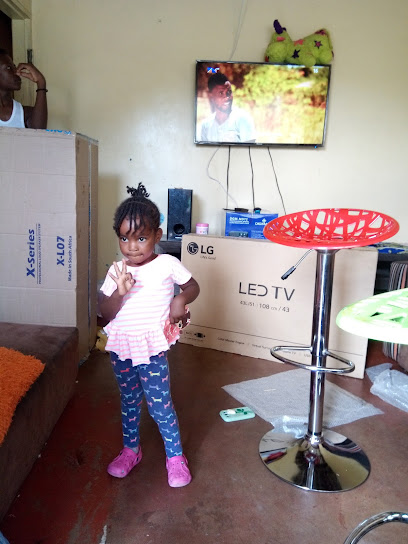
Fluid Night Club Chingola
Discover the energy and excitement of Fluid Night Club Chingola, where great music, delicious grilled dishes, and vibrant nightlife come together.
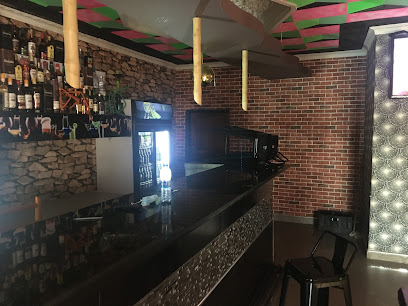
Msm Pub
Discover Msm Pub, a lively bar in Chingola, Zambia, perfect for drinks, socializing, and experiencing the local nightlife.

F.B.C Club
Discover the vibrant nightlife of Chingola at F.B.C Club, where locals and visitors gather for unforgettable evenings of fun and entertainment.
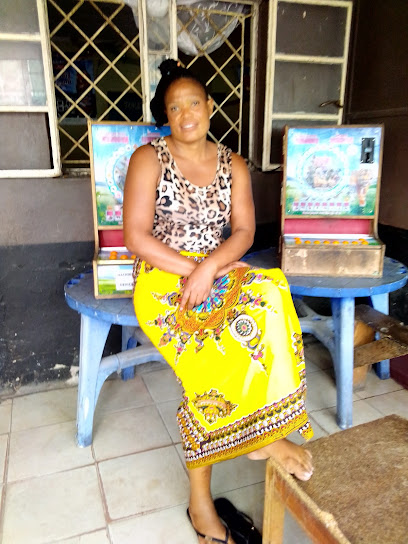
KINGS PUB 2
Experience the vibrant energy of Chingola at Kings Pub 2, a cozy bar offering a wide selection of drinks and a warm Zambian welcome.

Local Phrases about Chimfunshi Wildlife Orphanage
-
- HelloMuli bwanji
[moo-lee bwan-jee] - GoodbyeZikomo
[zee-koh-moh] - YesEya
[eh-yah] - NoAyi
[ah-yee] - Please/You're welcomeChonde
[chon-deh] - Thank youZikomo kwambiri
[zee-koh-moh kwam-bee-ree] - Excuse me/SorryPepani
[peh-pah-nee] - How are you?Muli bwanji?
[moo-lee bwan-jee] - Fine. And you?Ndi bwino. Ine?
[ndee bwih-noh. ee-neh?] - Do you speak English?Mukuti chiyankhulo cha Chingerezi?
[moo-koo-tee chee-yahn-khoo-loh cha cheen-geh-reh-zee] - I don't understandSindikudziwa
[seen-dee-koo-dzee-wah]
- HelloMuli bwanji
-
- I'd like to see the menu, pleaseNdikufuna kuona menu, chonde
[ndee-koo-foo-nah kwoh-nah meh-noo, chon-deh] - I don't eat meatSindidya nyama
[seen-dee-dyah nyah-mah] - Cheers!Mwaiseni!
[mwai-seh-nee] - I would like to pay, pleaseNdikufuna kuyimba, chonde
[ndee-koo-foo-nah koo-yim-bah, chon-deh]
- I'd like to see the menu, pleaseNdikufuna kuona menu, chonde
-
- Help!Chilungamo!
[chee-loong-gah-moh] - Go away!Tchoka!
[tchoh-kah] - Call the Police!Pemphani Polisi!
[pehm-pah-nee poh-lee-see] - Call a doctor!Pemphani dokotala!
[pehm-pah-nee doh-koh-tah-lah] - I'm lostNdimadutsa
[ndee-mah-doo-tsah] - I'm illNdimakulira
[ndee-mah-koo-lee-rah]
- Help!Chilungamo!
-
- I'd like to buy...Ndikufuna kugula...
[ndee-koo-foo-nah koo-goo-lah] - I'm just lookingNdikufuna kuchita bwino
[ndee-koo-foo-nah koo-chee-tah bwih-noh] - How much is it?Ndi ndalama zingati?
[ndee ndah-lah-mah zin-gah-tee] - That's too expensiveIzi zavuta kwambiri
[ee-zee zah-voo-tah kwam-bee-ree] - Can you lower the price?Mukhoza kugwiritsa ntchito?
[moo-koh-zah koo-gwee-ree-tsah nch-ee-toh]
- I'd like to buy...Ndikufuna kugula...
-
- What time is it?Ndi nthawi yoti?
[ndee ntha-wee yoh-tee] - It's one o'clockNdi nthawi yamodzi
[ndee ntha-wee yah-moh-dzee] - Half past (10)Mwachitsanzo wachisoni
[mwah-chee-tsan-zoh wah-chee-soh-nee] - MorningUsiku
[oo-see-koo] - AfternoonMawa
[mah-wah] - EveningChikuya
[chee-koo-yah] - YesterdayNkamubwerako
[n-kah-moo-bweh-rah-koh] - TodayLero
[leh-roh] - TomorrowMawa
[mah-wah] - 1Modzi
[moh-dzee] - 2Ziwiri
[zee-wee-ree] - 3Zitatu
[zee-tah-too] - 4Zinayi
[zee-nah-yee] - 5Zisanu
[zee-sah-noo] - 6Zisanu
[zee-san-dah] - 7Zisanu
[zee-sah-noo] - 8Zisanu
[zee-sah-noo] - 9Zisanu
[zee-sah-noo] - 10Zisanu
[zee-sah-noo]
- What time is it?Ndi nthawi yoti?
-
- Where's a/the...?Muli kuti...?
[moo-lee koo-tee] - What's the address?Ndi adilesi yanga?
[ndee ah-dee-lee-see yahn-gah] - Can you show me (on the map)?Mukhoza kundichititsa (pa mapu)?
[moo-koh-zah koon-dee-chee-tee-tsah pah mah-poo] - When's the next (bus)?Ndi nthawi yomweyo?
[ndee ntha-wee yoh-mweh-yoh] - A ticket (to ....)Ndi chiphaso (ku ....)
[ndee chee-pah-soo koo]
- Where's a/the...?Muli kuti...?
History of Chimfunshi Wildlife Orphanage
-
In 1983, Chimfunshi Wildlife Orphanage was founded by Sheila and David Siddle in Zambia. The couple took in their first chimpanzee, a badly injured infant named Pal, who had been confiscated from poachers. Pal's remarkable recovery under their care marked the beginning of what would become one of the largest and most renowned chimpanzee sanctuaries in the world.
-
Throughout the 1980s and 1990s, Chimfunshi expanded rapidly as more chimpanzees in need of rescue were brought to the sanctuary. By 1995, the orphanage had gained international recognition, attracting volunteers, researchers, and conservationists from around the globe. This period also saw the development of better facilities and increased media attention, further solidifying Chimfunshi's reputation as a leading wildlife sanctuary.
-
In the early 2000s, Chimfunshi began to establish itself as a significant research center for primatologists and behavioral scientists. Partnerships with universities and research institutions allowed for in-depth studies on chimpanzee behavior, social structure, and cognition. These research efforts have contributed valuable insights to the field of primatology and have helped to improve the welfare of captive and wild chimpanzees.
-
Chimfunshi has always been committed to engaging with the local community and promoting education about wildlife conservation. In recent years, the orphanage has developed a range of community outreach programs, including environmental education workshops, school visits, and community development projects. These initiatives aim to raise awareness about the importance of wildlife conservation and to foster a sense of stewardship among local residents.
-
Like many conservation organizations, Chimfunshi has faced numerous challenges, including funding shortages, poaching threats, and habitat destruction. Despite these obstacles, the orphanage has remained steadfast in its mission to protect and care for chimpanzees. Through partnerships with international conservation groups and continuous advocacy, Chimfunshi has played a crucial role in efforts to combat illegal wildlife trade and to promote sustainable conservation practices in Zambia.
Chimfunshi Wildlife Orphanage Essentials
-
Chimfunshi Wildlife Orphanage is located in the Copperbelt Province of Zambia, near the town of Chingola. The nearest major international airport is Simon Mwansa Kapwepwe International Airport in Ndola, approximately 160 kilometers away. From Ndola, you can take a taxi or arrange for a private transfer to Chimfunshi. The journey typically takes around 2 to 3 hours by road. Alternatively, you can fly into Kenneth Kaunda International Airport in Lusaka and then take a domestic flight to Ndola.
-
While at Chimfunshi, transportation options are limited. It's advisable to hire a car, preferably a 4x4, for more flexibility and ease of travel, especially for exploring the surrounding areas. There are local taxis available in Chingola, but they may not always be reliable. It is recommended to arrange your transportation in advance.
-
The official currency in Zambia is the Zambian Kwacha (ZMW). Credit cards are accepted in some hotels and larger establishments in Chingola, but it is advisable to carry cash, especially when visiting Chimfunshi and other rural areas. ATMs are available in Chingola, so it's wise to withdraw sufficient cash before heading to the orphanage.
-
Chimfunshi Wildlife Orphanage is generally a safe destination for tourists. However, standard travel precautions should be taken. Avoid walking alone at night and keep an eye on your belongings in crowded places. While the area around the orphanage is safe, be cautious in Chingola, particularly at night, as petty crime can occur. Stick to well-lit and populated areas.
-
In case of emergency, dial 999 for immediate assistance in Zambia. The nearest medical facilities are in Chingola, which is about 60 kilometers from Chimfunshi. It's recommended to have travel insurance that covers medical emergencies. For minor health issues, carry a basic first aid kit and necessary medications. The staff at Chimfunshi can assist in contacting local authorities and medical services if needed.
-
Fashion: Do dress modestly and comfortably, as the weather can be hot and humid. Wear sturdy shoes suitable for walking in natural terrain. Religion: Do respect local customs and traditions. Public Transport: Do be respectful and courteous when using local taxis. Don't expect public transport to be as punctual as in more developed countries. Greetings: Do greet people with a handshake and a friendly smile. It's polite to ask about someone's well-being before starting a conversation. Eating & Drinking: Do try local dishes and accept food offerings graciously. Don't refuse hospitality, as it is considered impolite.
-
To experience Chimfunshi Wildlife Orphanage like a local, take your time to interact with the staff and learn about their work with the chimpanzees. Participate in volunteer programs if available, and explore the natural surroundings with guided tours. Visit nearby local markets in Chingola to buy fresh produce and handmade crafts. Engage with the local community to learn more about the regional culture and traditions.
Nearby Cities to Chimfunshi Wildlife Orphanage
-
Things To Do in Solwezi
-
Things To Do in Ndola
-
Things To Do in Kabwe
-
Things To Do in Lusaka
-
Things To Do in Kasama
-
Things To Do in Kariba
-
Things To Do in Chipata
-
Things To Do in Chinhoyi
-
Things To Do in Livingstone
-
Things To Do in Victoria Falls
-
Things To Do in Kasane
-
Things To Do in Katima Mulilo
-
Things To Do in Hwange
-
Things To Do in Lilongwe
-
Things To Do in Mzuzu




